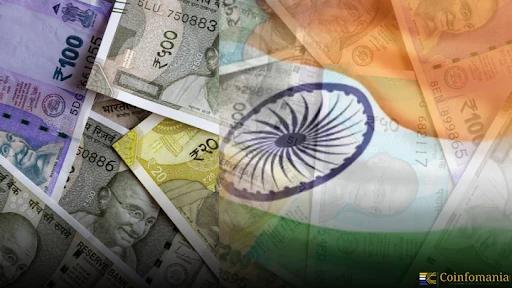Crypto Taxation in Morocco
Morocco cautiously regulates the cryptocurrency environment while banning crypto trading and drafting a legal system for its adoption. Regulating these currencies has become a balancing act involving Bank Al-Maghrib (BAM) and the parameters of financial security and innovation. Importantly, investors and businesses must know the evolution of the tax landscape in Morocco as it gears […]

Morocco cautiously regulates the cryptocurrency environment while banning crypto trading and drafting a legal system for its adoption. Regulating these currencies has become a balancing act involving Bank Al-Maghrib (BAM) and the parameters of financial security and innovation. Importantly, investors and businesses must know the evolution of the tax landscape in Morocco as it gears itself up for legalization by 2025. The crypto activities would thus be brought under the ambit of national fiscal policies under the oversight of the Moroccan Tax Administration (DGI).
Tax Authorities & Regulations
- Regulator: DGI (Moroccan Tax Administration) and Bank Al-Maghreb (BAM).
- Legal Status: Currently banned from issuing cryptocurrencies, but there is a draft law for 2025.
- Classification: Once regulation is underway, crypto could be regarded as a digital asset for taxation purposes.
- Key Laws: The Finance Law of 2025 is expected to bring into effect fiscal stability, and since crypto falls under that, it likely has some attachment to tax.
Types of Crypto Taxes in Morocco
Morocco is developing a clear crypto tax framework that will likely impose capital gains tax on trading profits if cryptocurrencies become legal. Income tax might also be imposed on the income from mining, staking, and airdrops, while value-added tax is unlikely to be taxed on transactions concerning cryptocurrency. This would be in line with international standards and aims to form a balanced atmosphere within the new requirements of the regulatory environment moving toward regulated cryptocurrency adoption in Morocco.
Tax Rates & Brackets
As Morocco prepares to regulate digital assets, its tax framework is taking shape with distinct brackets for different activities:
- Capital Gains: Anticipated 15-30% rate mirroring securities treatment.
- Income Tax: Individual rates are progressive and within the range of 10% to 38%, while corporate rates have brackets from 20% to 31%.
- Expected Benefits: Startup incentives that will stimulate blockchain innovation.
Morocco’s proposed crypto tax structure balances robust taxation with tech development incentives. Rates remain provisional until the 2025 laws finalize, with possible distinctions between casual/professional traders. Mining/staking would likely count as taxable income, while startup incentives aim to boost Morocco’s fintech hub ambitions.
Crypto Transactions & Tax Treatment
Tax policy for cryptocurrencies has continued to develop in Morocco, while measures for a regulatory framework are being prepared to be enacted in 2025.
- Buying/Selling Crypto: Currently illegal, but would, in theory, be subject to taxation once regulation is enacted.
- Mining/Staking: No clear rules yet; likely taxable as income.
- Crypto Payments: Banned, but may be permitted under new laws.
- DeFi & NFTs: No specific tax guidance yet.
The pending framework aims to clarify these treatment areas while balancing innovation with financial oversight. Henceforth, businesses and investors in Morocco ought to keep track of updates from Bank Al-Maghrib and the DGI regarding any future policies on crypto taxation. Properly documenting all transactions will constitute the basis of compliance once such regulations come into being.
Crypto Tax Reporting & Compliance
Morocco’s upcoming crypto regulations will require strict maintenance of transaction records concerning all digital assets. The moment the market is legalized, every business operating in this sector would have to mention its earnings from cryptocurrency in official tax filings. The Moroccan authorities will be the ones to impose such requirements since penalties would take the form of financial fines to legal consequences for noncompliance. Recordkeeping and timely reports, as such, will be imperative to escape regulatory vagaries in this dynamic pathway financially for companies and investors alike.
Tax Deductions & Exemptions
Under Morocco’s crypto development regime, entities in the business of cryptocurrency mining may be able to deduct things like the cost of equipment and electricity from gross income. On the other hand, the question of whether trading losses could be set off remains unknown for investors. Without such a clear law on whether these losses could be set off, the resulting tax environment is asymmetrical: profits could be taxed, while losses would have no relief. As market participants wait for these clarifications regarding critical tax items that will greatly determine their investment strategies and risk management in the nascent digital asset ecosystem of Morocco, the 2025 regulations are being drafted.
Enforcement & Penalties
According to the Moroccan tax agency DGI, it includes monitoring crypto transactions via exchanges and bank linkages. The DGI plans to implement its monitoring systems under the 2025 framework. The government envisions the attachment of strict compliance mechanisms whereby tax evasion could warrant high fines or criminal prosecution. Thus, as Morocco slowly navigated towards the regulated fostering of cryptocurrency adoption, the authorities put forth light enforcement mechanisms that would serve as disincentives against illicit activity while promoting the development of legal uses of digital assets. It would probably depend on whether penalties were dependent upon negligent or confrontational fraud.
Future of Crypto Taxation in Morocco
Morocco has on the anvil for a 2025 cryptocurrency framework, yet the digital asset market seems sprightly, as forecasts allow for a $278.7 million market in 2025 and a further rise to $292.4 million in 2026. The government keeps a cautious yet optimistic view-checking innovative methods with financial protection. It indicates that when crypto trading is legalized, it might merely enter an orderly regime with prescribed laws of taxation. This projected growth rate of 4.92% is indicative of the growing levels of interest in digital assets and possibly places Morocco in a commanding position as a leader in the region regarding the regulated adoption of cryptocurrencies. If adequately monitored, this fledgling domain could serve more than one purpose in bringing the drive to the digital economy of Morocco, as well as protecting investors.
Conclusion
In Morocco, the developing regulations in the field of cryptocurrencies give room for cautious optimism towards legalization; there is likely to be clear taxation by 2025. Investors should be on high alert for any happenings that may now be pending and prepare themselves for compliance. Informed and consulting tax professionals will be the major keys to responsibly discovering this new area of Digital Assets.
FAQs
1. When will Morocco’s crypto tax laws take effect?
The regulations are expected to be finalized under the 2025 Finance Law. Implementation will likely follow the formal legalization of cryptocurrencies.
2. How will Morocco classify cryptocurrencies for tax purposes?
Cryptocurrencies will probably be treated as digital assets, similar to securities, for capital gains and income tax calculations.
3. What records must crypto users keep for tax compliance?
Transaction histories, mining/staking rewards, and exchange records must be maintained. The DGI may specify formats later.
4. How frequently must crypto taxes be filed?
Likely aligned with Morocco’s annual tax cycle, though frequent traders might need quarterly declarations.
5. Does Morocco plan to tax stablecoins differently?
Stablecoins may follow the same rules as other cryptos, but their peg to fiat could trigger special considerations.
Follow us on Google News
Get the latest crypto insights and updates.
Related Posts

India Allows Global Trade Payments in Rupees to Reduce Dollar Use
Shweta Chakrawarty
Author

South Korea and Vietnam eye $150B trade despite Trump tariff
Shweta Chakrawarty
Author

Is U.S. Tariff Heat Bringing Russia, India, China Back Together?
Shweta Chakrawarty
Author